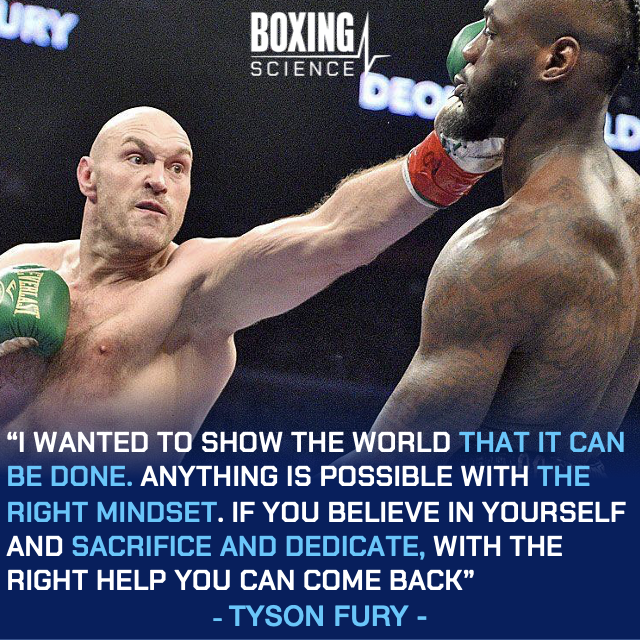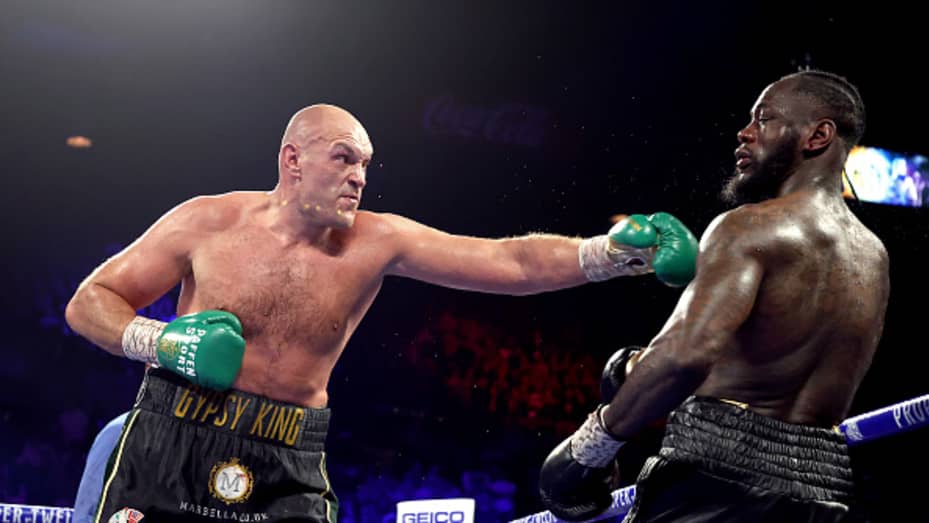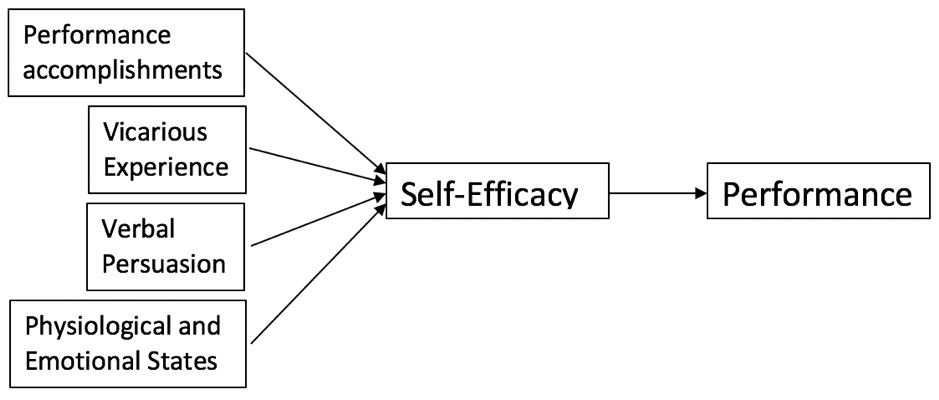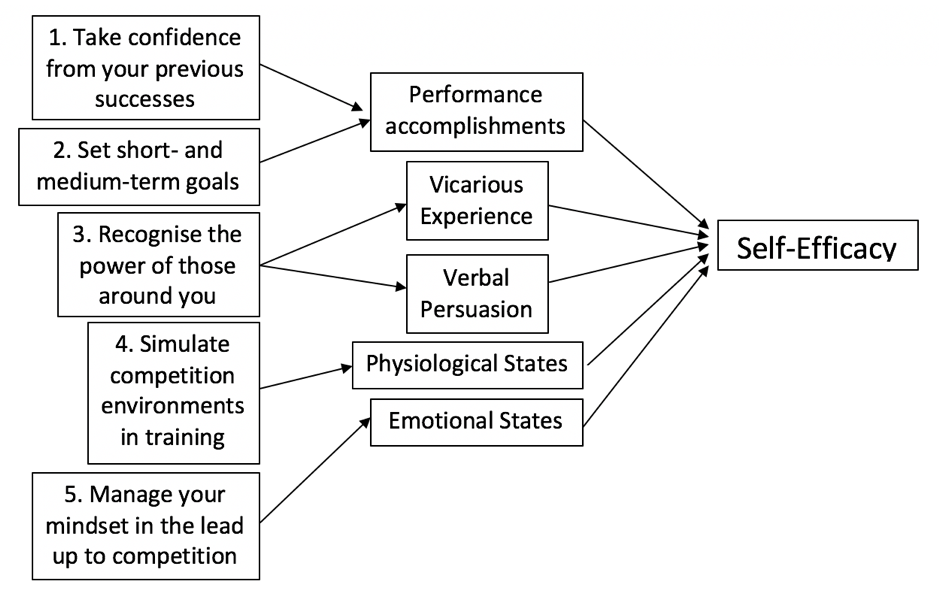Tyson Fury – How to Build your Self-Belief
How do the most elite fighters stay at the top of their game for so long?
What psychological skills do they possess that help them maintain the highest of levels of performance?
And how can you do the same?
TYSON FURY: THE MENTALITY OF A SUPERSTAR
Article by Simon Boonham

In this article we will take a look at a quote from Tyson Fury; extracting what lessons we can from the current WBC Heavyweight Champion.
First, take a look at this clip of the post-fight press conference following Fury’s draw with former WBC Heavyweight Champion, Deontay Wilder.
In this article we will cover the following:
– The quote from Tyson Fury
– What we can learn from Fury’s self-belief
– The psychological mechanisms behind self-belief
– How you can use this all to develop your own mentality too

THE QUOTE IN CONTEXT
This quote was delivered by Tyson Fury after his draw with Deontay Wilder on December 1st, 2018. The fight was Fury’s 3rd comeback fight after his initial retirement from boxing following his victory over Wladimir Klitschko in November 28th, 2015.
Even before the fight in 2015, Fury claims he knew he would beat Klitschko and that afterwards he would struggle to continue boxing with no aim or goal to work towards.
After achieving everything he had set out to achieve in the sport, Fury descended into a state of poor mental health and declining physical health.
Gaining 140 pounds over a three-year lay-off from, Fury reported turning to drink and drugs out of boredom and lack of motivation.
He has reported multiple time his experiences of daily suicidal thoughts and a complete lack of interest in the sport of boxing.
However, after 3 years of abusing his body and battling his internal demons, he made a return to the sport, fighting twice before challenging Deontay Wilder for the WBC heavyweight championship.
In a performance that many viewed as a clear victory for Fury, a majority draw decision was announced.

Fury suffered two knockdowns in the fight but was nonetheless believed to be the true victor after a brilliant display of boxing skill.
After a long journey of weight loss, psychological turmoil and hard, physical training, Fury had regained his place at the top of the heavyweight landscape – despite not winning the bout.
As we will uncover from his quote following the fight, the key to his return was his self-belief.
MENTALITY OF A SUPERSTAR
Here we will break this quote down into several elements – each representing a key part of his mindset in returning to boxing.
The “Right mindset”
Fury’s focus on mindset highlights how much of his battle was psychological in nature. Despite gaining enormous weight and physically abusing his body, this was all a result of his psychological condition and the behaviours resulting from this.
“Believe in yourself”
Following on from this emphasis on psychological qualities over physical, Fury suggests that he had to truly believe in himself to get the job done. It is perhaps his sheer determination and self-belief that enabled him to fight his inner demons and get back to the sport he was built for.
“Sacrifice and dedication”
Fury highlights that alongside his mindset, he has had to put in consistent effort to get back to his ‘former self’. Sacrificing things such as alcohol and drugs, his free time and replacing these things with a dedication to training and a healthier lifestyle were necessary components of his return from depression and poor mental health.
“With the right help”
This aspect shows just how important it is to have a good team around you. Fury may not even exclusively be referring to his team here either, it could be his family and friends that also played a huge part in supporting him through the tough times and giving him a reason to turn his life around.
“It can be done”, “You can come back”
The crux of the quote is Fury’s belief that anything is possible when you believe in yourself. Just as he was able to return from a detrimental state of mental and physical wellbeing, anyone in any situation is capable of doing better for themselves, and it starts with self-belief.
WHAT CAN WE LEARN FROM TYSON FURY’S MINDSET?
The overarching lesson to be learnt from this quote from Tyson Fury is the importance of self-belief. So, how can we take this lesson on board for our own lives?
THE PSYCHOLOGY OF SELF-BELIEF
Self-belief is similar to self-confidence, which has been studied by sports psychologists around the world for decades.
Self-confidence in a sporting context is defined as the belief that one can perform successfully in competition.
Another similar, yet separate definition is called self-efficacy. This refers to the belief that one can successfully organise and execute a specific goal.
In other words, self-confidence refers to the general confidence that someone holds most of the time, whereby self-efficacy refers to the confidence someone feels for a particular activity or skill.
Under these definitions, therefore, Tyson Fury can be described as having a high self-efficacy for the sport of boxing, with his personality also coming across as extremely confident overall as well.
A prominent theory of self-efficacy was developed by a researcher called Albert Bandura. His theory of self-efficacy explains that this situation-specific confidence is derived from many sources of information – each contributing a varying degree to the overall confidence someone might have for a particular activity.
Bandura’s Self-efficacy Theory:

Under this model, self-efficacy is derived from the following four sources of information.
1. Performance accomplishments refer to the previous experiences an individual has had with a given activity.
It is the most powerful source of self-efficacy as people are most likely to draw confidence from their previous successes and failures.
An elite-level boxer such as Fury will undoubtably have many previous successes from which to draw confidence about his abilities, and very few failures from which to doubt them too.
2. Vicarious experience simply refers to learning from the experiences of others, rather than ourselves. We all take a lot of information in from the success and failures of our role models and those closest to us to inform our levels of self-belief.
This information is particularly more useful when the model in question is similar to us. Tyson Fury is likely to be a role model for many lower-level amateur boxers due to the fact that they share an interest and participation in the same sport.
These boxers are therefore likely to model his behaviours after observing and imitating what he does, because they wish to learn from what he has achieved.
3. Verbal Persuasion is characterised by the feedback we receive from others about our skills and performance, as well as by our own internal feedback and how we view ourselves.
A coach’s feedback can be hugely influential on a sportsperson’s perceptions of how they are performing, but our internal voices and self-talk can also play a part in how we evaluate our performances.
This contributor to self-efficacy makes inherent sense as all individuals are hugely influenced by those around them, particularly if they are perceived to be more experienced and knowledgeable.
But we are all also self-critical to some extent and are therefore susceptible to our own internal evaluations of our performances.
4. Physiological and emotional states are the final factors in Bandura’s model of self-efficacy. These refer to how we appraise our internal emotions and bodily conditions.
When a boxer is preparing for competition (during the ring walk, for example), their heart will be racing, they’ll start to sweat, and their body will be full of nervous energy.
The way in which that boxer interprets these physiological changes can influence their confidence too.
It can feel, for the boxer, as if they are nervous and anxious about their performance (a negative appraisal). However, they could also have the view that this is the body’s way of preparing them for physical activity.
A positive appraisal would mean taking the view that these changes are necessary to fight effectively, as we know our bodies need to be physiologically excited in order to exercise at a high intensity.
—
These four sources of information are some of the most powerful influencers into how confident we can feel for upcoming performances.
In the following section, we will explore how these factors can be used to build our situation-specific self-confidence and ultimately, the belief that we can perform to the best of our abilities.
HOW TO INCREASE YOUR SELF-BELIEF
The following 5 methods of increasing self-belief fit with the sources of self-efficacy outlined by Bandura in the theory above:

At various points in their careers, fighters like Tyson Fury will have employed many techniques in order to help prepare themselves for those career-defining bouts such as Fury-Wilder 1.
By taking what you can from champions like Fury, you will be able to use vicarious experiences to emulate his mentality in your own preparation.
Here’s how you can attempt to do it…
1. Take confidence from your previous successes
If you’ve watched the rest of the post-fight press conference in the clip provided earlier, you’ll hear Fury mention that even though he had never beaten a champion of Klitschko’s level before defeating him, he always believed he could do it anyway.
He then goes on to claim that having defeated Klitschko, he knew he could do it again in the rematch with Wilder. Fury is clearly forming his self-belief from his previous performance accomplishments.
But this is not a technique reserved just for the world champions – in Tyson Fury’s own words; “Anyone can do it”.
Anyone at any level can take strength from their past to help build confidence for their future.
A method of applying this would be to reflect on the most recent of your previous performances where you were successful in some aspect. The more recent the accomplishments, the stronger the emotional attachment to these events.
It is hard to remember the exact feelings you experienced 5 years ago in the past. However, it is very easy to remember the satisfaction and adrenaline of winning that last bout or dominating that last sparring session.
A fighter preparing for his first bout might therefore take confidence from his recent successful sparring sessions – just as aspiring world champions might form a strong self-belief from their first victories as a pro.
These techniques are available to everyone, and they can perhaps be even more easily achieved through goal setting.
2. Set short- and medium-term goals
Goal setting over the short- and medium-term can be a useful way of measuring progress in your skills.
Sometimes long-term goals can seem very distant and, depending on the nature of your goal, it is not always so clear as to when they have been reached. Therefore, setting regular and attainable goals is a way of providing yourself with small successes that you can gain confidence from.
These goals should not be so difficult that you fail to reach them and consequently cause yourself to lose confidence in your abilities. They should, however, be challenging enough to give you the indication that progress is being made.
With goal setting, the time perspective and difficulty of the goal are therefore important in how much self-efficacy you can gain from them.
3. Recognise the power of those around you
Fury emphasises ‘the right team’ as being important for his comeback, and you too should recognise the importance of a supportive social network.
This relates to the principle of verbal persuasion in particular, as it is those closest to you that can have the most profound impact on your self-efficacy for competition.
Training and preparation for a fight can sometimes be a lonely time for fighters, with many reporting a feeling of isolation and needing to starve their distractions in order to stay focused. Even fury admits in this quote that dedication and sacrifice are necessary to “come back”.
However, whilst this mindset is certainly necessary to get through the tough times in training camp, fighters must be careful not to forget the basic need for social interaction that all humans crave.
Having the capacity to unwind and enjoy the company of others can help counteract the intense physical and emotional involvement that training camp demands.
It is therefore important to cater to your social needs as well as the needs of your training schedule.
The simplest way to do this, for example, would be to ensure that you make a deliberate effort to connect and socialise with those close to you on your rest days.
However, this could also be achieved by breaking up the training day with social activities too, in order to help relieve the tedium of high-volume training weeks.
Whichever way you decide to ‘programme in’ your social time, the most important thing is that you do it. Your close friends and family are perhaps the biggest keys to staying consistent and not ‘burning out’.
4. Simulate competition environments in training
Given that our physiological states can be highly influential on our confidence and self-belief in the moment, many fighters try to replicate competition environments in their training in order to familiarise themselves with these states.
Some of the simplest ways to do this might be to replicate the presence of a crowd by placing important individuals in your training environment to evaluate your performances.
Not only can they then critically evaluate your performances and provide verbal persuasion, but they can also help to recreate the conditions of fight night and give the illusion of a ‘crowd’.
This is already achieved by having your coach watching you spar and train, however, structuring your training so that sparring partners and your team are observing you work might help to simulate the conditions of fight night in training.
This is because of the emotional and physiological states that these onlookers will invoke in you. No fighter wants to fall short in front of their other sparring partners or friends, and so there is added pressure to perform.
This will help to mimic the pressure experienced in competition, providing an opportunity for you to acclimatise to this pressure while in training, where the results aren’t as important as they are on fight night.
5. Manage your mindset in the lead up to competition
We explained earlier that athletes can often confuse their body’s heightened physiological state for the onset of anxiety about performance – a nervous mindset.
This can be combatted simply by switching one’s mindset from an inhibitory to a facilitatory position.
Rather than viewing these physical changes as a form of anxiety that might inhibit performance, athletes can view it as the body’s way of gearing up to intense physical activity – a means to facilitate high level performance.
This switch is a simple yet not easy one. It requires a great deal of practice to be able to recognise and interpret these physiological symptoms as necessary components of preparation rather than symptoms of anxiety.
Once a fighter can attain this perspective, they will be able to manage their mindset to suit the occasion.
—
The five techniques outlined above can hopefully serve as means for which you can develop your self-belief in the sport of boxing.
As we have said, the mentality of a superstar like Fury is not just reserved for the superstars and champions out there, it is something that is accessible to us all.
Adopting the mentality of a champion like Fury is perhaps one of the ways that aspiring boxers can take on the vicarious experiences of these role models to improve their preparation for competition in boxing.
Take-away messages:
To conclude, in this article we have discussed:
– A key quote from Tyson Fury
– What we can learn from Fury’s self-belief
– The psychological mechanisms behind self-belief
– The ways you can develop your own mentality
